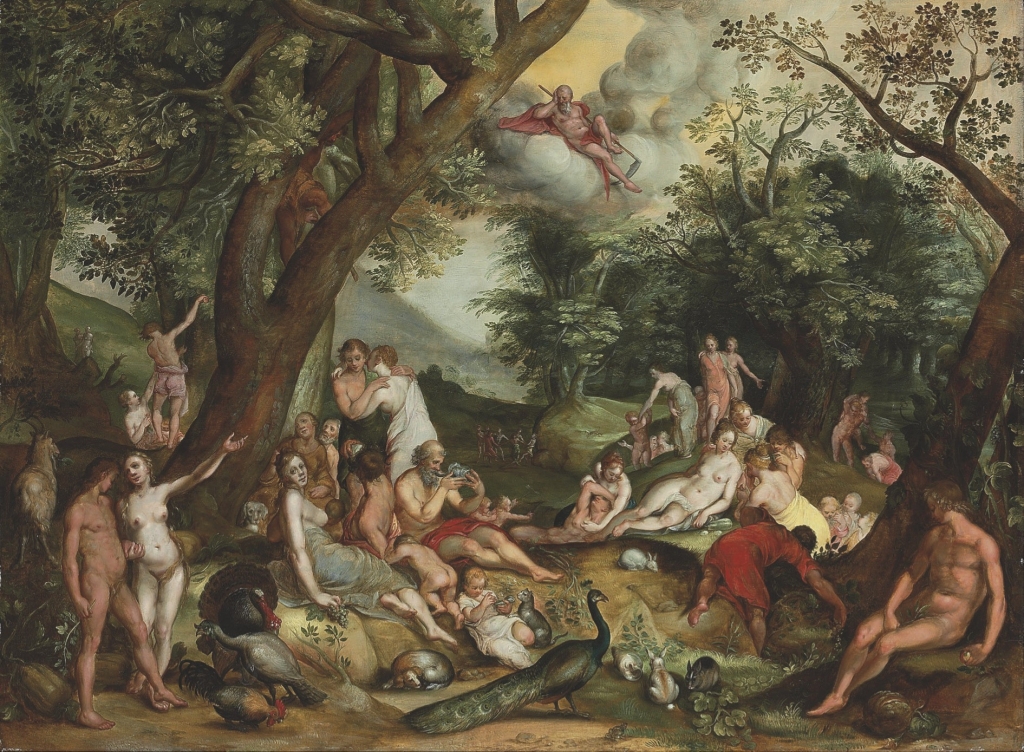
One of the central premises of theologies such as Buddhism and philosophies such as Stoicism is the notion of living in the moment. The thought goes, generally, don’t worry about the past or the future, just worry about the here and now. Whilst this makes a lot of sense, the absolute nature of it seems less sensical.
Firstly, we will consider the biomechanics of living in the moment. As you know, our awareness of the outer world comes from without, obviously. Although we can imagine the sun shining on a rainy day, as Wordsworth did as he blathered on about being a little cloud on a day which, according to his sister’s journal, was rather tempestuous, we first need to know what we are imagining. This comes from prior knowledge of the world- we know what the sun is, we know what clouds are etc. Once we have this template, we can start to observe the world around us. We see trees of green, red roes too, and other lyrics from great songs, and we say, ‘I am looking at a tree’. However, from the moment of looking at the tree and our awareness of what we are looking at, there is a journey. As you know, we see through the medium of light, light hits a surface and (partially) bounces off (note: items absorb the frequencies of the light which correspond with their ‘colour’. For example a blue rose would take in the frequency associated with Blue and reflect the rest, thusly, to us, a blue rose looks red as the colour red is that which is reflected) and enters the eye and travels along the optic nerve until it enters the brain and the brain goes, ‘hmmm, that is a blue rose pretending to be red, the rascal’. So, as you can see, from the moment of physically seeing the rose to ‘seeing’ the rose, knowing what we have seen, there is a lag in time. Likewise, if we are to burn ourselves on a stove, although we are burnt in the moment, by the time the skin recognises that it is being burnt, sends the sensation along the neve to the brain and the brain goes, ‘oh, darn, my dear Joan, we are being burnt’, there is a delay in time. Thusly, when we see a blue rose or are burnt, our awareness of it is less, ‘this is happening in this moment’ and more ‘this just happened’. From this we can conclude that our awareness of the world is only a memory of what just happened.
To move towards the metaphysical understanding of the phrase and world, we have to consider the human being as a whole. The notion of ‘living’ in the moment, shows a misunderstanding of what it means to be alive.
My definition of being ‘alive’ is that one ‘becomes’. This is a gradual process where one does not turn into who they become, rather uncovers who they are through a long, painful process (the Stoic philosopher Seneca noted wryly that one does not become wise by accident (note: knowing him as I do, which is not at all, I assume it was said wryly although evidence would suggest that he didn’t have a wry bone in his body). Regular readers will know that on the issue of Nature vs Nurture, I say both as one’s nature can shape who they are, but it also needs nurturing to be fulfilled and vice versa, and so one becomes the sum of one’s past. If one was to reject the past and only be who they are now, then they would not be them now, they would regress to the state of a newborn child. It is through lived experience that one is shaped and whilst we should not dwell on the past, learn from it, and move on, who we are is still rooted in the past.
If, to use my definition, we are beings that develop and grow then we must have something to develop into, to grow into. And what is this? The future. Although history ‘repeats’ as human nature is very primitive and generation upon generation makes the same mistakes and has the same justifications to explain it, it is for the large part unknown, unwritten, to use the tedious concept. The future is potential and as the actions of today have a bearing on tomorrow, it is prudent to be aware of them, (note: even the action of meditation, of being in that ‘one’ moment is performed to better prepare the individual for the next ‘moment’, i.e. the future), even in simple things such as, if I eat all of my food today, I won’t have any tomorrow.
In part one we concluded that to yearn for a Golden Age is nihilistic as one rejects life for a mythical past or future, and yet we also can conclude that to live in the ‘moment’ is also nihilistic as to do so one rejects the ‘real’ past and future, how one became who one is through the process of uncovering, and what one can be, the notion of potential.
I think we can draw the conclusion that to live for a Golden Age or ‘in the moment’ are not healthy ways to live, rather we must be conscious of the past in how we are as we are (not dwell on it as real events but to embrace the lessons it taught us) and note that the present also shapes the future and through balance (easier said than done) learn form the past and live in the moment preparing for the future.
‘till next time


